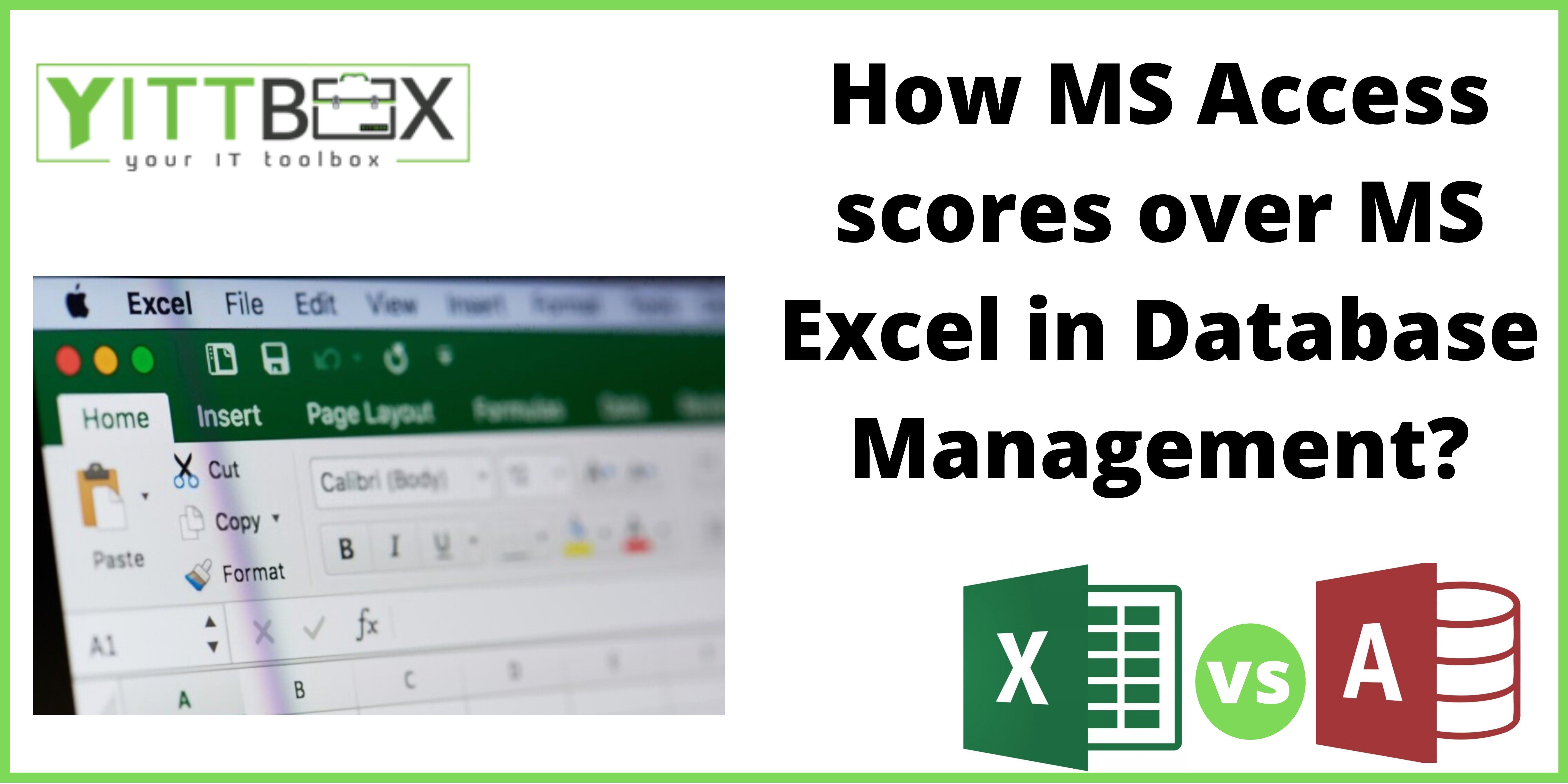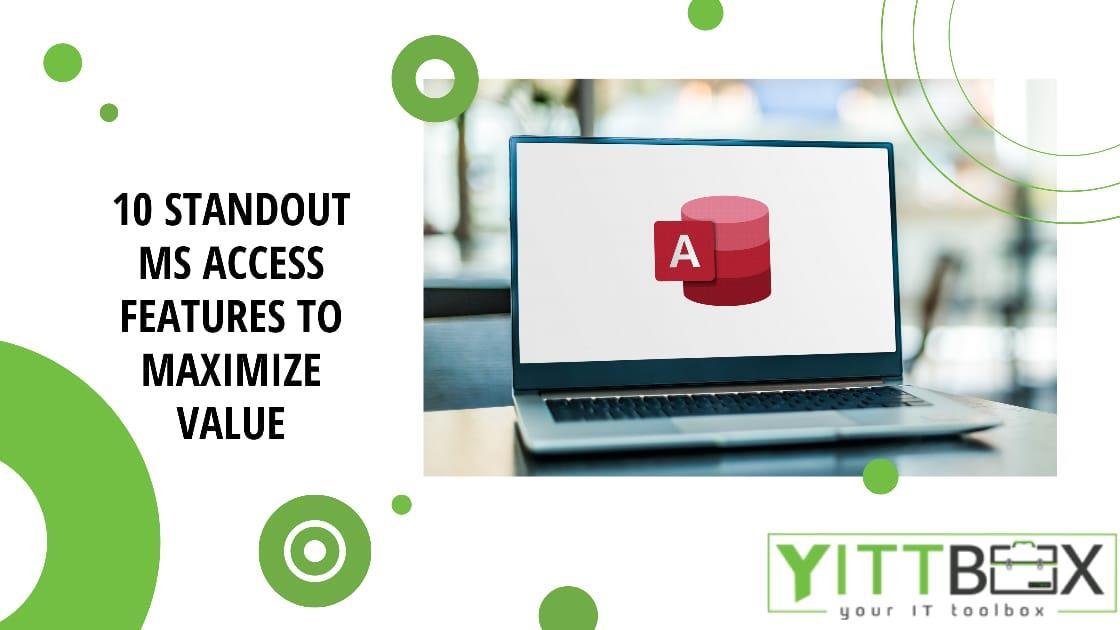How MS Access scores over MS Excel in Database Management
Microsoft Access and Microsoft Excel have numerous similitudes, which can make it hard to choose which program you should utilize. For instance, the two projects can store a lot of information, run complex inquiries and use tools to access that information, and perform complex calculations that return the information that you need.
Nonetheless, each program enjoys clear benefits, depending on the sort of information that you are handling, and how you need to manage that information. For instance, in the event that it is your objective to keep up with data integrity in an organization that can be accessed by several users, Access is your most ideal decision, while Excel is more qualified for complex mathematical information that you need to investigate in detail.
As a rule, you can use the two projects, utilizing each for the reason to which it is most appropriate. As a general rule, MS Access solutions are better for overseeing information: assisting you with keeping it coordinated, simple to look, and accessible to various concurrent clients. Dominate is for the most part better for investigating information: performing complex computations, investigating potential results, and delivering top-notch outlines. On the off chance that you use Access to store your information and Excel to break down it, you can acquire the advantages of the two projects.
Before you choose which program to utilize, it’s advisable to consider the inputs from a leading Microsoft access development company you might need to analyze the advantages of each program, realize when it is ideal to utilize either, and discover how to work with the two projects to accomplish precisely the outcomes that you need.
When to use Access
In everyday terms, Access is the most ideal choice when you need to track and record information routinely and then use, them to show and print subsets of that information. Access structures give a more advantageous interface than an Excel worksheet for working with your information. You can utilize Access to computerize every now and again performed activities, and Access reports let you sum up information in printed or electronic structure.
Microsoft Access solutions give more construction to your information; for instance, you can handle what kinds of information can be entered, what esteems can be entered, and you can indicate how information in one table is identified with information in different tables. This design assists you with guaranteeing that lone the right kinds of information are entered.
Access stores information in tables that look similar to worksheets, yet Access tables are intended for addressing complex queries comparable to information put away in different tables. MS Access is used to:
Create robust options to safely handle updates to the data that is handled by numerous users
Add more tables to specific data sets originating from non-relational tables
Run complex queries every now and then
Regularly generate several reports for various purposes within and outside the organization
When to use Excel
As a spreadsheet program, Excel can store a lot of information in exercise manuals that contain at least one worksheet. But, rather than serving as a database management system like comprehensive Microsoft Access data analysis, Excel is extensively used for information analysis and computation. You can utilize this adaptable program to assemble models for examining information, compose basic and complex equations to perform computation on that information, turn the information anyway that you need, and present information in an assortment of expert-looking graphs. Use MS Excel to:
Determine a non-relational or a flat view of your data without the need for a relational database that uses multiple tables
Run regular calculations and statistical comparisons of data
Incorporate pivot table reports for viewing hierarchical data in a simple and flexible layout
Create charts regularly to use the charting formats available to simplify this process
Emphasize your data using conditional formatting options
Perform sophisticated what-if analysis of data like statistical, engineering, and regression analysis
Track items in a simple list for personal use and for limited collaboration uses
Taking a Closer Look
Both Microsoft Excel and Microsoft Access are vital business applications. Yet, their use is utilized to various arrangements of individuals. Financial experts find Excel more helpful since it permits them to make monetary models utilizing a few equations, diagrams, charts, and so on Then again, all Access solutions are more helpful to entrepreneurs since they need to manage a lot of reports and inquiries.
Microsoft Excel and Access are distinctive in another perspective. Excel has greater adaptability, while Access is more rigid on how we can utilize it. Also, access is more valuable than Excel in one explicit region. MS Excel just gives worksheets that are flat or non-relational. Then again, MS Access gives tables that are related at multiple levels.
Excel can likewise be utilized for complex statistical analysis. Since Excel is not difficult to utilize and has a ton of adaptability, a complex factual model can be developed on Excel. Yet, with Access, it's more about gathering and arranging of information. What's more, many choose Excel over Access since building frameworks on Access is very hard.
Using Access and Excel together
There might be times that you would need to exploit the advantages both programs have to bring to the table. For instance, you made a worksheet in Excel in which you can ascertain and dissect the information, however, the worksheet has gotten excessively huge and complex, and numerous different clients need to approach the information. Now, you should import or connect your worksheet into Access and use it as a data set as opposed to working with it in Excel. Or on the other hand, maybe you have information in an Access data set for which you need to make some itemized Excel PivotTable reports and expert-looking Excel graphs.
Regardless of which program you utilize first, you can generally move the information from one program to the next, where you can keep on working with it. With or without an information association, you can bring information into Access from Excel (and the other way around) by replicating, importing, or exporting it.








